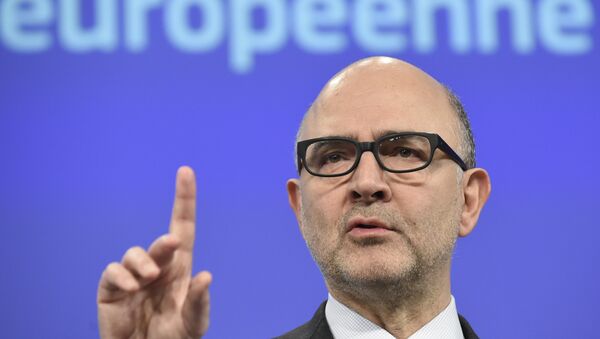The EU has been struggling to agree common tax arrangement ever since the LuxLeaks scandal which unearthed so called 'sweetheart' deals agreed between the Luxembourg Government and hundreds of companies to take advantage of its benign tax system and route profits from sales in other EU states through the Grand Duchy.
"Politically I consider these leaks to be good news: momentum to act further" @pierremoscovici on #PanamaPapers https://t.co/i501PXOkUx
— European Commission (@EU_Commission) April 7, 2016
However, European Parliament politicians have struggled to reach common agreement on taxation in the face of similar sweetheart deals in Ireland and Belgium, as well as the prolific use of tax havens linked to the UK - including the British Virgin Islands, the Cayman Islands and Bermuda.
"Panama Papers left me outraged and furious. We do not yet know how much of this activity was illegal but much of it was certainly […] immoral, unethical and, in one word, unacceptable. The amounts of money, the jurisdictions and then names associated with this affair are frankly shocking, Public opinion, the people, are fed up with these outrageous practices," Moscovici said.
He called for a radical shake-up in taxation regulation in the EU — despite the fact that efforts to bring in more tax transparency have been criticized as not going far enough. EU finance ministers in March agreed to make the largest corporations operating in the EU report their activities to tax administrations. It follows a series of rulings and investigations by the European Parliament and Commission.
We have presented measures to modernise #VAT in the EU https://t.co/vMnmDGX5d2 #FairTaxation @pierremoscovicihttps://t.co/D0UytQp1st
— European Commission (@EU_Commission) 7 April 2016
However, critics say the new tax arrangement — for multinationals with a total consolidated group revenue of at least US$847 million — will only involve passing tax information between member states' tax agencies and will not be made public or available to journalists.
Tax Havens
Campaign group Transparency International says the country-by-country reporting (CBCR) scheme is further flawed in that companies will only be required to publish information on a CBCR basis for activities in EU Member States.
"For the rest of the world, including tax havens outside the EU, companies will only have to disclose an aggregate figure which undermines the legislation. Multinationals will still be able to shift their profits outside the EU without anyone being able to monitor where they are located, what they are doing and what they give to governments in the form of taxes or other payments. If a CBCR system only applies to 28 countries and leaves out 168, it cannot be called CBCR," the campaign group said.
EU leaders have made clear their commitment to VAT zero rating for sanitary products. We will deliver swiftly as part of VAT Action Plan.
— Pierre Moscovici (@pierremoscovici) April 7, 2016
In January 2016, the European Commission branded the Belgian "excess profit" tax scheme illegal under EU state aid rules and ordered the country to recover the US$760 million unpaid tax from the companies concerned, most of which are major multinationals.
In October 2015, the Commission ruled that Luxembourg and the Netherlands have granted selective tax advantages to Fiat and Starbucks, respectively. The Commission also has three ongoing in-depth investigations into concerns that tax rulings may give rise to state aid issues, concerning Apple in Ireland, Amazon and McDonald's in Luxembourg.
The investigation into Ireland's tax treatment of Apple is ongoing. Last December the Commission opened an investigation into Luxembourg's tax deal with McDonald's.



